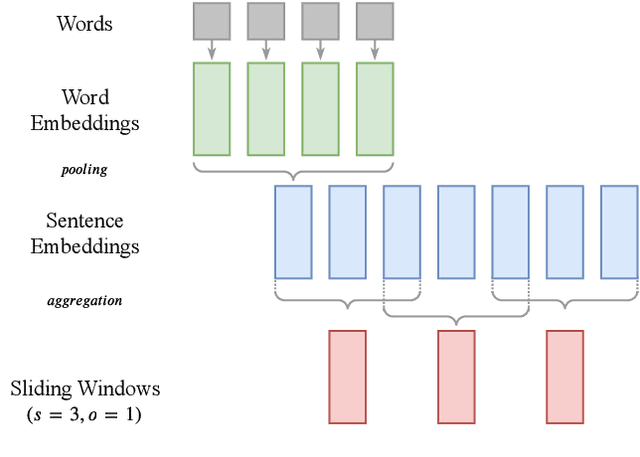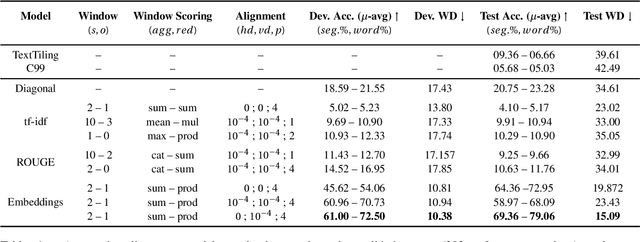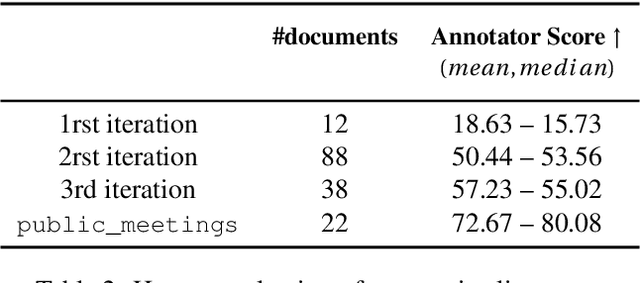Align then Summarize: Automatic Alignment Methods for Summarization Corpus Creation
Paper and Code
Jul 15, 2020



Summarizing texts is not a straightforward task. Before even considering text summarization, one should determine what kind of summary is expected. How much should the information be compressed? Is it relevant to reformulate or should the summary stick to the original phrasing? State-of-the-art on automatic text summarization mostly revolves around news articles. We suggest that considering a wider variety of tasks would lead to an improvement in the field, in terms of generalization and robustness. We explore meeting summarization: generating reports from automatic transcriptions. Our work consists in segmenting and aligning transcriptions with respect to reports, to get a suitable dataset for neural summarization. Using a bootstrapping approach, we provide pre-alignments that are corrected by human annotators, making a validation set against which we evaluate automatic models. This consistently reduces annotators' efforts by providing iteratively better pre-alignment and maximizes the corpus size by using annotations from our automatic alignment models. Evaluation is conducted on \publicmeetings, a novel corpus of aligned public meetings. We report automatic alignment and summarization performances on this corpus and show that automatic alignment is relevant for data annotation since it leads to large improvement of almost +4 on all ROUGE scores on the summarization task.
 Add to Chrome
Add to Chrome Add to Firefox
Add to Firefox Add to Edge
Add to Edge